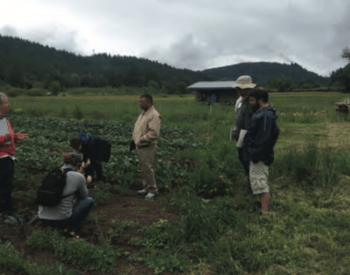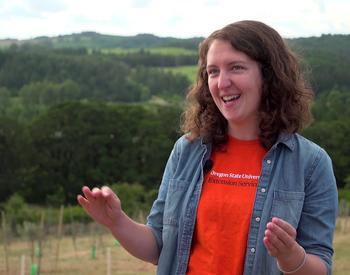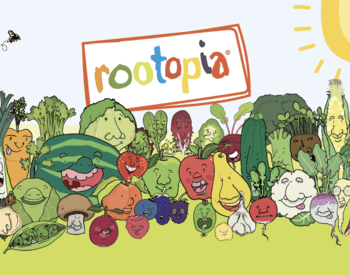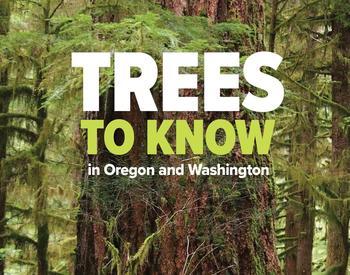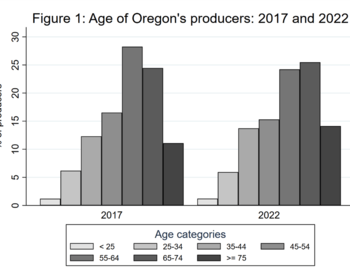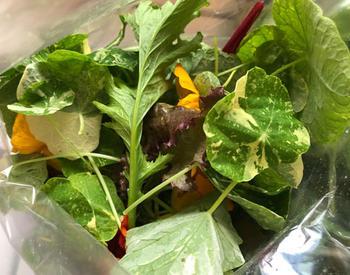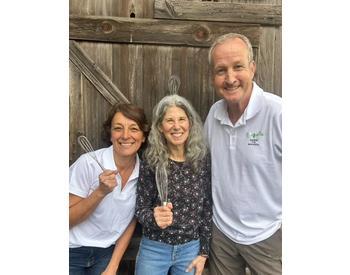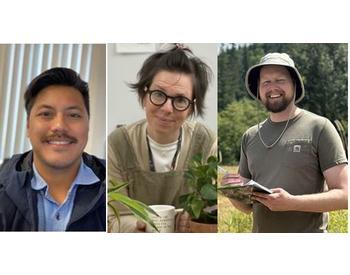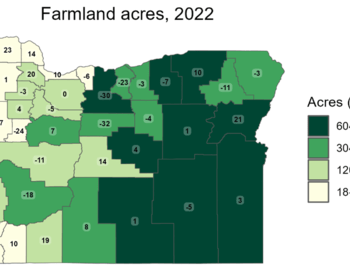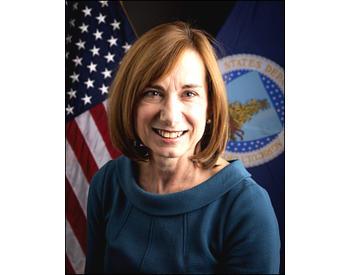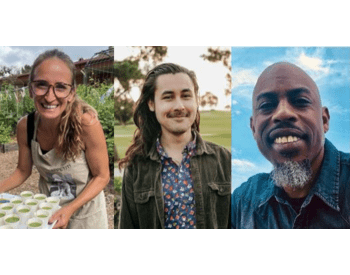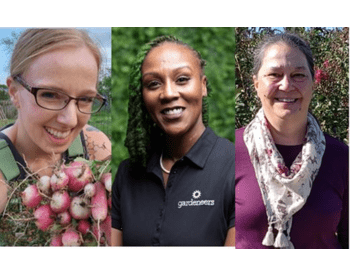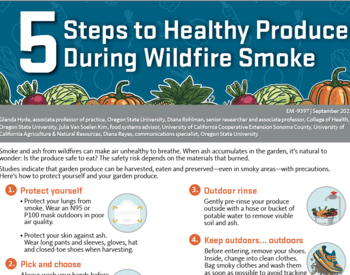Transcript
00:00:08 Michelle
Welcome to the Farmington School podcast, where you will hear stories of how youth thrive and farmers prosper when we grow, cook, and eat delicious, nutritious food and local schools.
00:00:19 Rick
We’re your hosts, Rick Sherman, and
00:00:22 Michelle
Michelle Markesteyn, and we are farm to schoo school coordinators for the state of Oregon.
00:00:28 Michelle
This is super fun. Today we're going to be talking about the farm to school movement and where we are at. And at the time of this recording, 65% of the schools in the US are doing farm to school. That means they're serving more than 43,000,000 kids around the country. Every state in the country is serving local foods and engaged in some level or not of garden based education.
00:00:53 Rick
, that's really impressive when you think that. But I always think of what we talk about all the time that. Back during World War One, there was a United States School Garden army with her 2.5 million kids.
00:01:08 Michelle
It's a lot of kids.
00:01:09 Rick
They didn't have the the National School lunch program then, so they had to grow their own food if they wanted to eat.
00:01:13 Michelle
There's something to that. So I think what you're pointing to is that interest in and funding for farm to school and school gardens ebbs and flows over time depending on, , societal problems and needs and It peaked during the 1919 and then again in the 1970s.
But what we are here to talk about today is the seeds of the third wave of farm to school movement in the US with our very special guest Anupama Joshi, who is one of the farm to school movement architects. Hello Anupama!
00:01:46 Anupama
Hello, Michelle and Rick, nice to be here, so glad to have you on the show.
00:01:50 Michelle
Thank you! So Anupama co-founded and served as Executive director of the National Farm to school network for more than a decade. And they did a ton of really cool things related to policy and funding to support local food procurement.
And Anupama, It was the first time of nationally organizing around farm to school. We'll hear more about that, but I'm just wondering Anupama, , my son at the time of recording, is a senior in high school, and every adult in his life is like “What do you want to do? What do you want to do with your life? What are you going to be?” And I think about you, and I think. Did you wake up one day and think? Yeah, I am gonna Co facilitate an entire national network around farm to school?
00:02:40 Anupama
No way. Who does that? Michelle, I didn't. I certainly didn't think of it that way. And I didn't even think of it after I started working on farm to school in 2002 in California. And in hindsight, , if I can say so myself, what has happened with farm to school in the last 20 plus years is actually really phenomenal.
00:03:01 Anupama
It can be a model for other promising initiatives across the country. What I did know back in high school was that I was really fascinated by food and nutrition and as a result of that, I trained and got my masters in nutrition from India.
00:03:16 Anupama
And when I did that in the developing world and in my training, the framing around nutrition was always around sort of malnutrition and was the feeling of malnutrition was from the lengths of undernutrition in the developing world and in countries that I was in, this was in India when I came to the United States in the early 2000s.
00:03:38 Anupama
I really needed to sort of reframe my lengths to thinking about, , thinking about malnutrition as overnutrition as well, which it always is in the definition of malnutrition for anybody.
00:03:52 Anupama
That studies nutrition, but I had never. I had never experienced it. When before I came to the United States and I was seeing it in media stories that were that were talking about increasing rates of diet related diseases in general and then specifically related to, , childhood nutrition.
00:04:11 Anupama
Problems and childhood obesity. I remember clearly in the early 2000s, the Surgeon General of the United States also pronounced childhood obesity as an epidemic, and so this was all sort of new and a little bit shocking to me coming from the developing world and I needed to sort of adjust my frame to this over nutrition, , frame that I was, till that time not familiar but I think it was really it was really impactful In my approach to my work in farm to school and in my life as well. I at that point I was a new immigrant to the new immigrant, to the United States. And I was about to become a mother actually. And when I started working on computer school and I was concerned about what kids were eating at school and how it was impacting their health outcomes, moving forward again, had my child had not been born.
00:05:08 Anupama
My son had not been born then. But I was carrying him and It was really impactful and it was really, I think in some ways shaped the way I was thinking about my work and how it was, how it was impacting children across the country. And then it was personal to me as well as someone who was a new mom.
00:05:33 Michelle
So what is?
00:05:34 Anupama
About to be A mom.
00:05:35 Michelle
Yeah. What is the link then in between farm to school and childhood obesity?
00:05:44 Anupama
Yes, I think one of the things that is really fascinating about farm to school and the history of farm to school in in the United States is that it actually started from the from the from the angle of supporting farmers and USDA was playing a large role in the late 1990s of thinking.
00:06:07 Anupama
About thinking about farmer supporting farmers to sell to local institutions. Especially schools and diversifying their revenue streams. By considering schools as a potential place that they could sell and so that was sort of that that was how I think.
00:06:30 Anupama
Officially farm to school have started in in the United States, at least with with USDA engaging from the farmer perspective of it. And it's interesting how over the last, couple of years, but frame has, I wouldn't say changed, but I think it really has, it really has morphed into this multi benefit approach where there is a benefit for farmers, but there's also a benefit for children not just in their nutrition and health, but also in, in what they're learning and how they're connecting with the community with school meals are school meals are one of the major part of a child's day and if the quality of school meals is not what it should be, then kids are obviously not getting the nutrition that they need as per the guidelines that are set for school meals, but they're also not learning about what good food can be and not learning about where their food comes from. And not having a connection with their food. And to me, I think the second and third pieces that I mentioned, the connection with food and the understanding of where food comes from is so important for getting kids, but also getting anybody excited about what they're eating and actually having a desire to improve on what you eat and try out different things really comes from comes from having the experiences that that happen with a farm to school approach in schools and I think.
00:08:03 Anupama
That is where farm to school links with childhood obesity and the potential to impact childhood obesity and improve child health. Because you can really influence the way kids are eating and the way kids have a connection with foods and healthy foods specifically from a very, very early stage in their lives, even from, kindergarten and preschool. And that is that has lasting impact on what they eat and what their health outcomes are in in the future.
00:08:37 Michelle
So thinking about the roots of the farm to school movement, you said you came into farm to school, but was there a network and a national collaboration and organization when you first started working in the space?
00:08:54 Anupama
Yeah. So no, there wasn't. I started working on Farm to school in the early 2000s and I was really focused on a coordinated effort in California at that time to work with a handful of school districts in California. A couple of researchers, some farmer organizations where you kind of taken a again a multi sector approach to see what we can do in California as a model for other States and prior to that.
00:09:25 Anupama
There was, as I said previously, a national initiative that was focused on building the farm to school model, and was supported by the USDA, called the USDA IFAX project or IFAX initiative, and it really came from the farmer perspective. There were, I believe, there were four to six states from the USDA was supporting a kind of pilot the farmer school model in California, New York, New Jersey.
00:09:55 Anupama
In Pennsylvania and that was sort of I think the beginning of formal a formalized approach to even saying farm to school. But it was really coming from a farmer farm to perspective of revenue generation, alternative revenue generation for farmers or diversification of revenue for summers, back in the late 90s, early 2000s. So when I came into farm to school, there wasn't a coordinated effort nationally, I was hired in California to work on a coordinated effort in California, and as I did that or as I started doing that, I connected with a lot of people that were that were working on farm to school or trying just getting started to work on farm, to school in a couple of again, a handful of different states across the country.
00:10:44 Anupama
North Carolina, Washington State, Florida, Illinois, New Mexico. Maybe a couple of others, but I could actually come down and we were all as we as we saw each other at conferences or met each other at different events. We were realizing that we were all grappling with similar issues, regulatory barriers with regards to the procurement regulations for school meals, communication issues as in like we don't have common language.
00:11:14 Anupama
We needed training for farmers and training for food service directors as well we needed money and support for building the infrastructure, not just for the network, but also building the infrastructure at the school level and at the farm level to be able to sell local foods into the school system. And then we there were questions about what the impact of this thing can could be and we needed to invest in research and evaluation to make that case, we all we all believe that this has the potential we had seen at the local level.
00:11:53 Anupama
But there weren't any. There weren't any research studies. There was not even an evaluation study that said that this is going to be impacting how kids eat. And this is gonna be having better economic outcomes for farmers, which we know both on both ends, now that primary school has a positive impact on both ends.
00:12:16 Michelle
And when you say when we've seen it and we know farm to school does at the beginning, Did everyone agree on what counted as farm to school?
00:12:29 Anupama
Oh, great question... No, there wasn't a definition of farm to school. There were connected activities that were happening all across the country, whether it be related to buying foods for school, school meals or getting kids out into the garden or on farms, farm tours, farmers coming into the classroom, there were a lot of different kinds of things that were happening. But there wasn't really a definition of farm to school.
00:13:29 Anupama
And as we as we started thinking about the need for common language and the need for documenting the outcomes we realize that you can't really evaluate something that doesn't have a definition. So we really needed to nail down the definition and so that.
00:13:50 Anupama
Then later, , even after the early years of farm to school and even the network being established, the definition of farm to school came much later and we needed to work in a way that was inclusive because it came later, so it was already happening. These activities were already happening all across the country. We needed to create a system, create a process by which people that were working on primary school didn't feel alienated, didn't feel that they didn't have a space.
00:14:24 Anupama
In the way the new definition was being framed. So we went through a pretty intensive process and came down with a definition. I should say that that has it's a 3 pronged approach, first one being local procurement into school meals or for school meals.
00:14:46 Anupama
Second, being school gardens, getting kids out into the school garden to grow food, and the third being exponential education, either within the classroom, using food as a tool or outside of the classroom, such as things such as farm tours or getting kids to go out on a trip to taste different kinds of foods at a farmers market, let's say, and so , getting kids, using food as a tool for education, I think is a is a part of farm to school that is different from some other models that get at trying to get kids to trying to get kids in school needs to be healthy.
00:15:33 Anupama
That aspect of the educational aspect of it, I think, is the distinction in my opinion, as well as the focus on local and regional procurement and the benefit of the local and regional procurement is that there is a potential for the education to happen in a way that is connected with the Community. So the local farmer coming into the classroom or kids going out to the local farm and then the farmer is selling at the farmers market and as a result, the child knows that that farmer is selling at the farmers market and gets the kids family goes to the farmers market and sees it.
00:16:07 Anupama
And so it's a cyclical sort of community connection. I think that happened that would not happen if that local and regional part of it was not part, was not part of the school.
00:16:25 Rick
Thank you. Thank you for elaborating on that. So, like we were wondering how you got to… you had it all in your mind and then you got together with people at conferences and you started defining it like you were saying. So it wasn't clearly defined it at that point. But then you did as you pointed out, you got some definitions of what farm to school is it. And then at what point, did it become a national movement like it became the national farm to school and school garden network? How did how did you make the jump from after that definition to it becoming a real thing? Where we're going to have network and we're going to farm to cafeteria conferences where 4000 people will would convene every two years and how did that come about?
00:17:18 Anupama
As we were getting together to learn from each other and share what our barriers were coming up with solutions together, we sort of came up with a group of us- this was about 30-40 people across the country collaboratively.
00:17:36 Anupama
We came up with like a wish list of things that we would work on together and came up with a plan that had like a multi year plan for working together with a price tag that was multiple $1,000,000 and we had a couple of funders that were also a couple of foundations that were also part of these conversations with us and one of them was the WK Kellogg Foundation and we sort of shared this wish list and this idea of a multiple multiyear, multi $1,000,000 initiative to really ramp this up and take on these activities in a more coordinated way.
00:18:22 Anupama
I remember distinctly that the program officer at that time at the WK Kellogg Foundation, doctor GAIL Emig, who’s invested in this in this work for sure said to me that I like this idea, but I'd like you to go back to the drawing board and come up with a planning process that is more inclusive, and organizations right now that are working together on this, but we're really like you to do a little more outreach to understand who else is out there and who you're missing and what could it actually look like and what the needs are not just from these 30 people, but a little bit broader and let's do that for about a year and a half or so.
00:19:14 Anupama
So the planning grant from the WK Kellogg Foundation was really the impetus for structuring the National Farm to school network, and that was that was like a I think, a pivotal moment in the history of the national campus school network. I mean, it would. We wouldn't. The National Campus school network wouldn't exist if that planning grant hadn't happened. And so we used the planning grant. It was a year and a half long process that we did to do our outreach to organizations that are outside of our existing connection and find out what people needed. What did they think? And that was incredibly helpful. I'm incredibly grateful to Doctor Emeke at the WK Kellogg Foundation for making us pause essentially and doing the work that needed to be done to be more inclusive. And that helped us in immensely in setting up the farm to school network in in 2007, the National Farm to school network was officially launched with support from the WK Kellogg Foundation with a multiyear initiative and we set it up again in a way that was in partnership with regional organizations and state organizations across the country was a coordinated approach and we set it up for we had sort of commitments from the foundation and.
00:20:35 Anupama
For the first three years, from 2007 to 2010, and then we had, , we had a list of things that we, as I said, a wish list that that obviously also emerged as we did our we did our due.
00:20:50 Michelle
I want to hear that diligence. What's your wish list?
00:20:53 Anupama
The wish list was communication. There were five prongs. But programs, policy, communication, training and technical assistance and outreach, I think, were the five prongs that we agreed on that we wanted to invest funds, and work on and as part of that process. As part of that initial launch meeting, I recollect that we had done a visioning.
00:21:28 Anupama
Or sort of, aspirational activity with the leads, the regional leads and the national staff at that time. And we had told ourselves that at the end of at the end of 10 years we would, we would be really thrilled if Charter school was operational in in all 50 states of the country. And lo and behold, at the end of three years of phase of the Foundry School network in 2010. All 50 states had already reached that we had already reached that that target which was incredible as well as incredibly surprising, honestly.
00:22:04 Anupama
Because were clearly not thinking big enough. We were thinking about it in 2007. Because you had set a goal for a 10 year, that actually was accomplished in three years. So that was pretty fascinating actually. And 2010 was also a pivotal moment for Farm to school with the passage of the Child Nutrition Reauthorization Act that established farm to school team at the United at the USDA and also established a grant program within the USDA. This particular piece of legislation for this particular task was actually made six years back. There was in 2004, there was legislation passed that that a group of leaders across the country had to ask for a farm to school grant program to be established. And while that legislation was passed, it was not, there was no money appropriated to it. There were no funds appropriated to it, and it took us six years to get to a point where the first round of grants through the USDA called the Farm to school Grant program was established, and I think that was a milestone year for farm to school with the establishment of not just the grant program, because as I said, , investments were needed, but also the infrastructure that was set up with the grant program at the USDA with staffing and with expertise on training and technical assistance at the national level and at the regional level with their staff and that's just funds going into even collect information on what's happening across the country, the numbers that you just mentioned at the start of the podcast, Michelle in in the number of number of states that are that are operationalizing farm to school. The number of kids we didn't have a way the National Farm School network, we didn't have a way to collect that information in a comprehensive way or we needed the USDA to step in and because of the farm to school grant program legislation, there was an evaluation component written into it and the USDA has stepped in and what is now the Farm to school census, which is run by the USDA.
00:24:25 Rick
I'm just thinking, Thank you so much for all your work and starting this movement that we take it for granted. We know what farm to school is, but it's and all the work has been done. And there's like, as you mentioned, all 50 states have a farm to school program of some sort, whether it it's housed in an agency or a nonprofit, or somebody that's leading the charge in each state. But we've just one of the reasons we're doing this podcast is because the more we talk about it, the more we find out. Still, people don't have never heard of farm to school, so we wanted to just keep it going and try to get the word out to more folks, the parents and the community and things we do a good job with the with our programs, we have state grants now. You mentioned the federal grant, From the school grants that are out there. But if we do a good job with teaching farm to school in the in the classroom. But the community partners. So that's why we're doing this. But I just thank you so much for the hard work and probably the decade long work of getting this all started.
00:25:37 Michelle
Yes, thank you so much, Anupama. And in you, in your introduction you mentioned that the farm to school movement could be a model to reflect on for other societal social change movements. And I'm just wondering if we could dig into that concept a little more.
00:25:55 Anupama
Yeah, In the evolution of the farm to school movement, as I'm sort of reflecting on it and it's trying to think about, I'm trying to think about what were the elements that that made it happen and a couple of things that come to my mind are obviously the commitment of the people that were driving it and the relationships that were established with the leaders at that time in the early stages of charter school were really important. I think it was also it was also as successful as it has been because it was community driven and there was a need that was identified by that community that they really wanted to make a change within the school meal system, they wanted to teach their kids where their food comes from at the national level or at the state level have either been sort of driven by farmer need or childhood obesity but at the local community level, I think the if the community was involved, I think.
00:27:06 Anupama
It really sort of helped nourish the farm to school program at the local level and then at the student action level as well. If there was a need for the coordinated approach. Then there were state networks that performed and as I mentioned, the national network was formed because there was a need that was identified as well. So it wasn't it wasn't because there was some money available and we could we could set up a coalition or a nonprofit or a network. And so that was important. I also thought that the support that we that the support that we were able to garner as a result of the clarity of vision that came from the definition was really important and so sort of step one was in some ways clarity of definition. And clarity of vision for what we wanted this to be and then as a result of that, the support kind of followed because dollars came in the research initiatives came in the legislative authority came in. I think we were also fortunate with the farm to school movement in the timing of when it happened and this was happening when during the Obama administration, just part of this was happening during the Obama administration and certainly, , let's move and First Lady Michelle Obama initiatives around childhood obesity and focus on that was a big was a big was certainly a big contributor to elevating not just farm to school, but a lot of other initiatives happening around child obesity across the country. So we were sort of riding that way as well. We also had really good communication about once we have the definition.
00:28:51 Anupama
We have really good community, and that was really important we we are recording this and October is national farm to school month and it might seem like a very, very small and easy thing to do to have a proclamation that says that October is National Park School month, which again also happened in 2010, but it was an important moment because stakeholders across the country to kind of rally behind something and promote farm to school in the month of October as a result of that, there were a lot of other sort of states that did farm to school month proclamations in other in other months that were much more conducive for their growing.
00:29:37 Anupama
But it it gave everybody an opportunity to come together, national farm to school month events started happening.
00:29:49 Anupama
And then National Farm to School month also happens to be in October, but also National School lunch week happens to be in October, too. And so that alignment was really, really helpful too. But at that time it seemed like there was no money attached to it this proclamation.
00:30:09 Anupama
But I can see in hindsight again that is something that was a small thing, but actually quite a big thing that helped grow and promote the movement. And Rick, as you said, it's still not a household name and the work that you're doing is incredibly important kind of getting that communication and outreach to, not just talking to the choir that we, we talked to the practitioner, the Charter school supporter and the parents in the schools, who are becoming parents like I was and wondering what my child is gonna eat in in school and how that's gonna impact his or her health outcomes.
00:30:56 Michelle
I'm reflecting on your timeline and your bird's eye national view and thinking about a state level view, and interested in how you had mentioned it started as formed school, right? The USDA funding to say how can we grow markets for farmers In Oregon, that was that was a little similar. It was the Department of Agriculture was the first folks to really hold speed dating for farmers and schools. But nothing really took shape until that childhood obesity crises was named by the then General Surgeon General that you had mentioned, and we had a policy here in Oregon and we were doing research and trying to. We did the same thing. We had a big ask right out of the gate. We asked for $22 million to Fund Farm to school and they said OK, here's 200,000, show us what you got. Like, what do you do with that and what would it look like? And halfway through the evaluation study was 2008 in an economic crises.
00:32:04 Michelle
And suddenly any policy that was even going to be heard in the legislature had to have direct economic impact. So I know this happened on a national level too. A lot of the lens and framing was then around the economic benefits and tracking those at the same time as tracking child obesity. So it's really interesting to hear similar trajectories on different timelines related to.
00:32:31 Anupama
Yeah. It's so amazing. I mean, it actually has come full circle, right?
00:32:36 Anupama
It started with alternative markets for farmers and economic viability for farmers went into childhood obesity and then came back into Economic Community, economic benefits eventually.
00:32:53 Michelle
Yeah, and it continues. Someone once asked me “is farm to school a solution in search of a problem?”
00:33:02 Rick
That's an interesting way to think about.
00:33:04 Michelle
Things right, because we designed it theoretically and empirically, backed to be a full systems approach, right? Like literally changing the food system so it's more delicious, sustainable, and nourishes our mind, body, social emotional, mental health -the whole picture.
00:33:25 Rick
what's not to love about that? About farm to school, though? I mean, like, like and Anupama was referring to in the farmers. Everybody wins. The farmers, the kids, the teachers.
00:33:44 Anupama
One other thing I wanted to mention was that that that win, win, win approach that positive. How farm to school can benefit Children's Health, farmer viability and community development that I think is unique and also I think was the positive framing of that versus saying school meals shouldn't have this or shouldn't have that, or farmers shouldn't be selling here because it doesn't make sense. But having a positive frame for what can happen and what could happen or the possibilities of what can happen in my opinion, I think that was really helpful frame in general, for social change and I mean not to say that there have not been strong movements that have that have taken that alternative approach or seen things differently. But the win, win, win framing.
00:34:53 Anupama
Also was important because we were and I think still are able to really have not that much opposition to the model, whether it comes to whether it comes to political parties or nobody can sort of nobody can really find any holes in what the benefits of farm to school can be. So it's always been a bipartisan approach and because it was community driven, I think that really helped in the in the growth of the movement across the country. Different states were growing at different levels and together the fact that there was a national initiative that was sort of bringing all of that together, whether you're step 2 from the school state or whether you're just starting was incredibly helpful because at peer-to-peer learning.
00:35:52 Anupama
That the national farm to school network was facilitating help states come up to speed really quickly in, in states or localities where common school was not happening. Yeah.
00:36:03 Anupama
The last thing I wanted to also say was that when farm to school was started I don't think that it was actually framed as a food justice approach, or an approach that is that is addressing racial equity and justice. But with the heightened, very much needed importance on racial equity and justice that that has come to the forefront over the last couple of years.
00:36:38 Anupama
Farm to school, I think over the last couple of years has been framed as a food justice approach because it has been because it has been a community driven model. I think it just is a is just totally in alignment with the food justice approach where you are you are you're really working at a higher quality meal for all farmers, you are figuring out ways that I'm sorry you're working, working on trying to get healthier foods into school means for all children, irrespective of any kinds of kinds of qualifications, be it income or educational qualifications. And the same thing on the farmer end as well there is an entry point for all kinds of farmers. All levels of farmers, all sizes of farmers and farm operations to be part of this model, and that is benefiting.
00:37:36 Anupama
All of them, I think, is a food that that's kind of frames it as a food justice approach. And again this is I think it is an evolution of the evolution and maturity of the of the farm to school model that that helped to train as a food justice approach. It wasn't articulated like that earlier, but it has been articulated later and it makes total sense.
00:38:00 Rick
Well, that's the thing. As you were articulating that it was just running through my mind, it might have started as a food justice approach or and then certainly there's an economic development thing aspect that comes into about the numbers. And then what? We found too is there's an aspect of this that's relating to student achievement and I get a lot of mileage out of that when I'm talking to school boards and principals and things that when students are out. We call it “no child left inside,” when they when they get out in the put their hands in the dirt and they start doing that experiential learning and they really make the connection to where their food is coming from and their attendance goes up. We've heard that discipline problems go down. So there's that whole student achievement part too.
00:38:49 Rick
So, it was it must have been OK you started that movement and you were I think you transitioned out of the national farm to school network. I want to thank what was that five or seven years ago? How long has it been and what have you been up to since then?
00:39:09 Anupama
I transitioned out of the national farm to school network intentionally because I wanted the network to have some fresh leadership, and I also needed to challenge myself in different ways. And I did that in 2018.
00:39:27 Rick
It must have been like leaving a baby or a child or something?
00:39:33 Anupama
Yeah, it was really like it was really like leaving a baby. And it was it was not easy, but it certainly was needed to happen for myself and for the organization and. And I'm so glad I did that. I decided to go into environmental philanthropy and work with a network of funders called the Blue Sky Funders Forum for three years after that, and a lot of it was aligned with this no child left inside that you mentioned. We were the funders that I was working with were investing in outdoor education and connections to nature. And so we're very much aligned with the educational aspects of going to school.
00:40:22 Anupama
So there was a there was a sort of a straight line alignment there that I was still carrying forward. I was not necessarily working on the on the local procurement or the the food procurement pieces of it, but there was certainly connections and I learned a lot through that. I learned a lot about how philanthropy works and as a nonprofit leader for the decade before that, I was raising funds and for the work and to be on the side where you have an inside view of how foundations work and how funders work and the decisions that they make, as well as the strategy that that effect was was really insightful and I I was really fortunate to also work with a great group of funders through Luke Sky Funders Forum. But also I think what was really fulfilling was there was an opportunity to opportunity to use the learnings from the national farm to school network in sort of creating a a common creating a common strategy or a North Star for lots of lots of different organizations across the country. In this case it was funders and we sort of came around, we came around a an approach that we called rethink outside which really sort of talked about, which really sort of was centered around ensuring that the opportunities and the benefits of of being outside in nature and the connections to nature are available to all individuals and all communities irrespective of race, economic status or or location for that matter. So that sort of common strategy getting collaborative agreement on a set of principles.
00:42:15 Anupama
And and working together towards the North Star was certainly something that I carried forward from the national, from the school network to the Blue Sky Funders Forum. In creating this initiative, called meeting outside, which really resonates with my approach. And then since then I have recently come back into the food space.
00:42:39 Anupama
For the last year I've been with the Center for Science and the public interest, where I'm working on legislative initiatives at the federal level, policy advocacy and partnerships at the at the local and state level and regulatory initiatives and efforts with the FDA, but also with the USDA on a whole slew of campaigns and issues such as school nutrition, no surprise there, but also retail, retail initiatives and what is stocked in retail outlets, looking at the nutrition security programs the federal nutrition security programs that we have like SNAP and WIC and CFB and and also looking at looking at foods or working on food safety, food safety guidance and regulations that impact our public health.
00:43:44 Michelle
Wow, anupama. Thank you. I really appreciate it. Sounds like the amazing work continues and your ability to bring people together and hold space for conversation with really impactful societal change continues in lots of different fronts. Thank you so much for everything you do Anupama.
00:44:01 Rick
Thank you so much for being our very first remote broadcast! I don't know if people knew this. You're not in the same room with us, but you're calling from across the country. And our technology allows us to say hello to you on the air. This way. Thank you so much.
00:44:17 Anupama
Well, thank you for having me and thank you Michelle and Rick, both of you are stellar farm to school leaders as well and colleagues over the years, I appreciate it.
00:44:27 Michelle
Thanks anupama.
00:44:28 Rick
Oh, we really appreciate it too. We'd like to thank everyone for listening today and tuning in. Thank you Anupama so much for the impactful work you do every day.
00:44:37 Michelle
The farm to school podcast was written and directed and produced by Rick Sherman and Michelle Markesteyn and was made possible by a grant from the United States Department of Agriculture.
00:44:46 Rick
The content and ideas presented by this program do not necessarily reflect the opinions of Oregon State University, the Oregon Department of Education, or the United States Department of Agriculture.
00:44:57 Rick
The USDA, Oregon Department of Education and Oregon State University are Equal Employment Opportunity employers.
00:45:04 Michelle
Want to learn more about Farm to school? Check out other episodes and show notes and so much more at rotopia.com. Rootopia is a project of Oregon State University.
00:45:18 Rick
Or do you have an idea for a future episode of the Farm to school podcast? Send us an e-mail at [email protected].
00:45:28 Rick
Thanks everybody and thanks Anoop. I'm.
00:45:30 Michelle
A thank you.
00:45:30 Michelle
Thank you Anupman, Talk to you later.
00:45:32 Rick
Bye. Thank you.
Join us as we interview Anupama Joshi, the founder of the National Farm to School Network as she details how this movement started.
About our guest
Anupama is an accomplished nonprofit leader driving evidence-based policies, programs, and funding in the nutrition, public health, agriculture, and environmental sectors. As Vice President of Programs at the Center for Science in the Public Interest, Anupama leads national, state, and local policy advocacy; legislative campaigns; and regulatory affairs to support equitable access to healthy, affordable, and sustainable food. Previously, Anupama was executive director of the Blue Sky Funders Forum (a working group of the Environmental Grantmakers Association). Anupama co-founded and served as executive director of the National Farm to School Network for more than a decade where she advocated for policies and funding to support local food procurement, school gardens, and experiential education in schools and early care sites. She holds an MS in nutrition from M.S. University in Baroda, India, and spent the first few years of her career on related projects in India, Thailand, and Malaysia. Anupama serves on the board of directors of the Food Recovery Network, the Farmers Market Coalition, the Triangle Land Conservancy and is an advisor to the Outdoor Alliance for Kids. She is co-author of Food Justice (MIT Press, 2010). Anupama is a mom, enjoys exploring the world, cooking for friends and family, and lives in Cary, North Carolina.
The Farm to School Podcast is produced by Rick Sherman, Farm to Child Nutrition Program Manager at the Oregon Department of Education and Michelle Markesteyn, Farm to School Specialist at Oregon State University Extension with production support from LeAnn Locher, OSU Extension. The show is made possible by a grant from the United States Department of Agriculture.
Want to connect? We’d love to hear from you!



